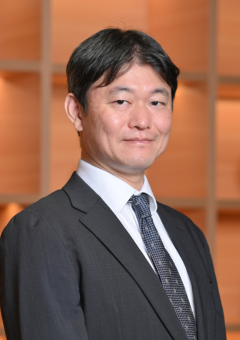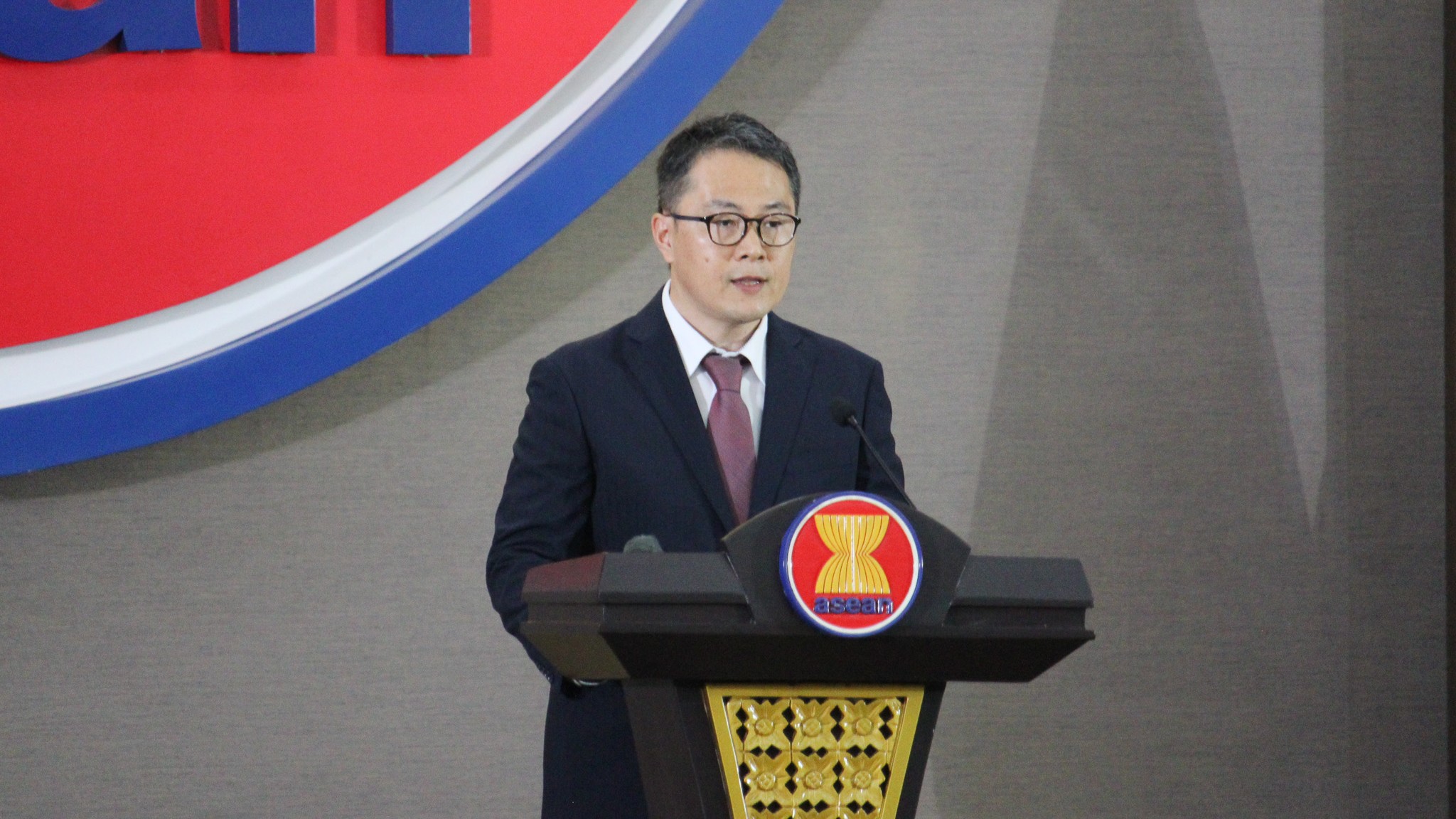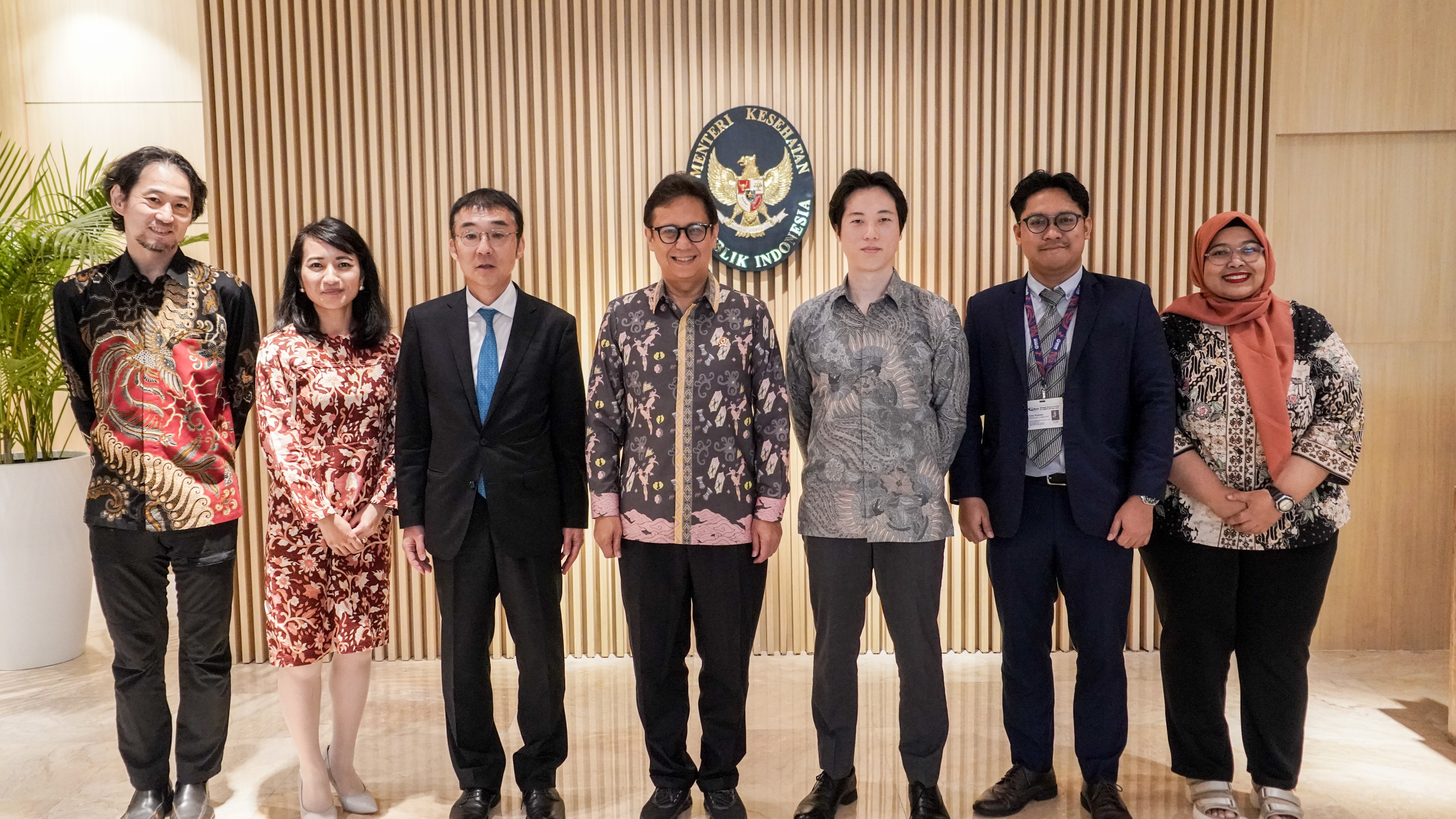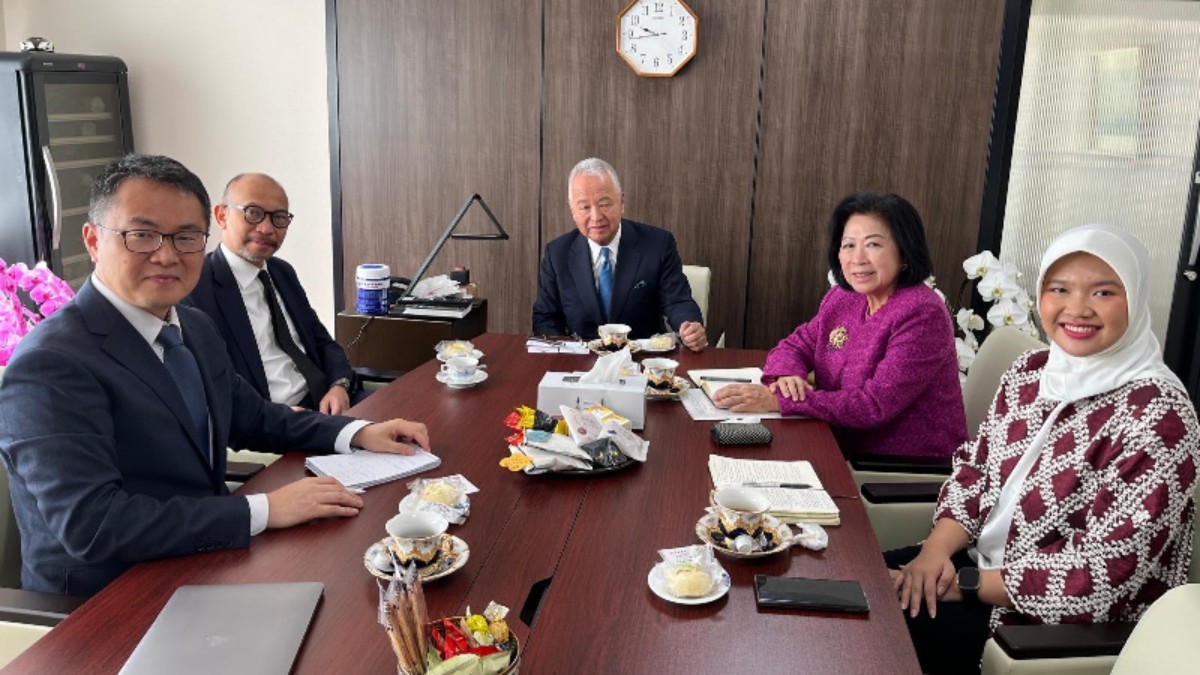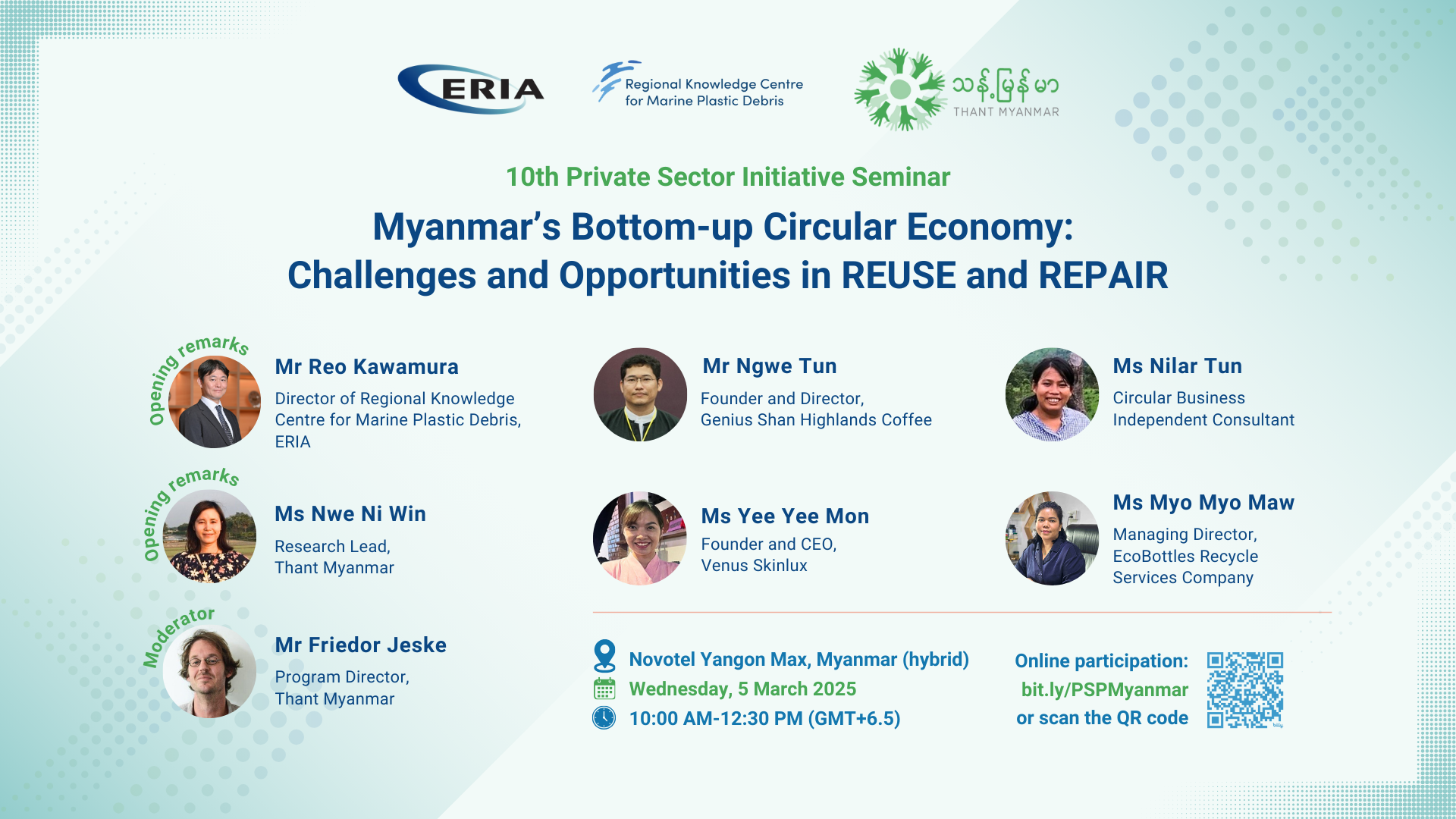
Wed, 5 March 2025
BACKGROUND
Plastic is a versatile, durable, lightweight, and inexpensive material, which makes it ubiquitous in our daily lives. However, the increasing amount of plastic waste in our environment and its negative impact on marine ecosystems have raised significant scientific concern in recent years. East and Southeast Asia are recognised as the largest contributors to marine plastic pollution, due to rapid economic growth and inadequate solid waste management infrastructure. In fact, the ASEAN+3 region is estimated to account for around 64% of the global annual leakage of plastic waste into the ocean.
Alarmed by this regional situation, ASEAN Member States in 2019 welcomed the ASEAN Framework of Action on Marine Debris and adopted the Bangkok Declaration on Combating Marine Debris in the ASEAN Region. In May 2021, ASEAN, as a group, officially launched the ASEAN Regional Action Plan for Combating Marine Debris in the ASEAN Member States (2021-2025), which acknowledges the urgent need to combat marine litter. This includes promoting platforms for knowledge sharing, innovative solutions, and best practices to address the issue. Additionally, discussions are ongoing to establish an international legally binding instrument on plastic pollution, including in the marine environment, with the aim of completing negotiations by the end of 2024.
In response to this regional and international context, the Economic Research Institute for ASEAN and East Asia (ERIA) established the Regional Knowledge Centre for Marine Plastic Debris in 2019. The Centre aims to support the ASEAN+3 Member States in addressing the emerging challenges related to marine plastic debris. One of its key missions is to promote the private sector’s innovative actions to combat plastic pollution.
In fact, the private sector in ASEAN+3 countries has made significant contributions to reducing plastic waste, and consequently, marine plastic debris in the region. Their efforts span both production and consumption (the 'upstream' level) as well as recycling and waste management (the 'downstream' level).
Myanmar, in comparison to its ASEAN neighbours, is even more focused on building a resource-efficient economy with low plastic production and consumption. However, waste management presents a significant challenge on the downstream side, despite the efficiency of informal recycling systems. Waste management infrastructure is underdeveloped in urban areas and almost nonexistent in rural areas, resulting in substantial plastic leakage. Highlighting the systemic upstream systems that facilitate low plastic consumption could help other ASEAN members refocus on improving upstream measures.
OBJECTIVES
On this occasion, ERIA, in collaboration with Thant Myanmar, aims to explore consumer product circularity built around reuse and repair.
Waste generation in general, and plastic waste generation in particular, in Myanmar are among the lowest in the world, at 0.37 kg per capita per day and 0.04 kg per capita per day, respectively. The key question is how an economy functions with such low plastic consumption. To address this, the seminar will explore Myanmar’s thriving circular economy, its closed-loop, localised supply chains, and an economy that is generally built around local resource efficiency.
The event will bring together private sector innovators and organisations supporting the economic transition to further promote the circular economy.
Agenda
|
10:00 AM – 10:25 AM |
Welcome Remarks
Opening Remarks
|
| 10:25 AM - 12:25 PM |
After the introduction of each speaker by the Moderator, the panel discussion will dive into the current stage of Reuse and Repair practices its challenges and future opportunities.
Moderator: Friedor Jeske, Program Director of Thant Myanmar Q&A session |
| 12:25 PM - 12:30 PM |
Closing
|
ERIA Speakers
Event Details:
Hybrid Event
Private Sector Initiatives to Reduce Marine Plastics: Myanmar’s Bottom-up Circular Economy: Challenges and Opportunities in Reuse and Repair,
Start Date:
Wednesday, 5 March 2025,
End Date:
Wednesday, 5 March 2025,
Time:
10:00 AM - 12:30 PM
Timezone:
Myanmar time, UTC+6:30 | Jakarta time, UTC+7
Subscribe to mailing list
Invitations | Publications | Newsletters
